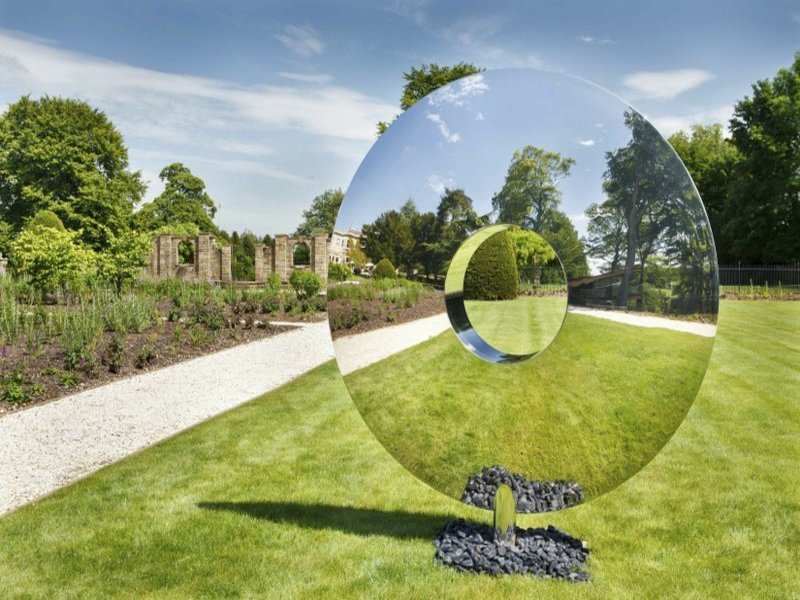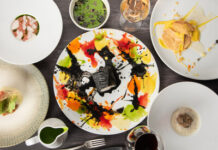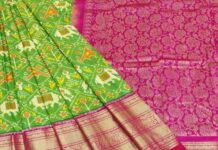KIM COOK
The outdoor furnishings market has been dominated for years by wicker-look resin furniture and beachy prints. Spindly folding lawn chairs have given way to deep, comfy seating, and fabric choices have grown from sweaty, rough plastics to weatherproof linen, soft cotton, even velvet. The living room has most certainly moved outdoors.
But for those whose design sensibility skews toward the avant-garde, there haven’t been a lot of options. Until now. More and more designers and makers are producing cool, imaginative pieces for backyard and balcony. If you’re into the artsy decor, there’s no reason why your outdoor space can’t reflect that as well.
British artist David Harber has developed a global following for his innovative outdoor sculptures, which play with light and landscape. In his Oxfordshire studio, Harber and his team create sculptures, water features and sundials out of metal. Sunlight filters through a piece called Mantle, made of bronze petals fused together and gilded on the inside; the light transforms the middle into molten gold.
One of his most popular pieces, Torus, is a circular expanse of super-polished steel that reflects the landscape or water in front of it. It’s there in front of you, yet appears transparent.
Armillary spheres were the first thing Harber learned to make, and he says the marriage of art and science drew him to the form.
“I’ve made (them) for tiny cottage gardens, and for hotels; they have a universal appeal,” he says.
Available in brass, steel and bronze, the spheres can be custom engraved. Some people have commissioned phrases with personal meaning; others have had their spheres etched with family names, house names, latitude and longitude, or distances to significant destinations.
In his Brooklyn, New York, studio Opiary, sculptor Robert Remer takes a more freeform approach to his artful outdoor pieces. His sculptures, planters and seating, made of steel armatures and resin-fortified cement, look otherworldly.
The Archaic planter collection of abstract, organic shapes resemble pieces of dinosaur skeleton or water-eroded rock. Little niches throughout the pieces can be planted with moss, alpines and succulents. The Drillium chair and chaise were inspired by aircraft construction and bones. Curvy, sensuous lines with circular cutouts and little crevices for plants contrast with the hefty presence of the concrete material. You could see these pieces on an interplanetary patio.
The Museum of Modern Art’s store is carrying Moroso’s M’Afrique collection of colourful outdoor furniture, handmade in Senegal with woven materials and painted steel. M’Afrique showcases the region’s innovative weaving craft; Moroso teamed with designers like Tord Boontje to create the collection.
Among the pieces: the Banjooli table, with bright yellow polyethene cords woven to evoke overlapping feathers and inspired by the courtship dance of the ostrich. The Shadowy armchair has a Seussian exaggerated profile with a high back, curvy canopy, and eye-popping colourways like black and white or orange and yellow.
Thomas Heatherwick’s Spun chair, made by Magi for Herman Miller, looks like a giant child’s spin top. Placed upright, it’s sculpture. Tipped on its side, it’s a playful, comfortable seat. Spun comes in black, white or red.
Loll Designs’ Rapson chair at Perigold is a futuristic plastic version of a traditional wing chair; it comes in a bunch of colours including leaf green, apple red and sunset orange.
Finally, for fans of a certain HBO series, Amedeo Designs’ Throne chair, available at Houzz.com, might be just the thing. Intricately carved and substantially sized, the piece is actually made of lightweight resin – the perfect place from which to have a commanding view of whatever the backyard games might be. AP







